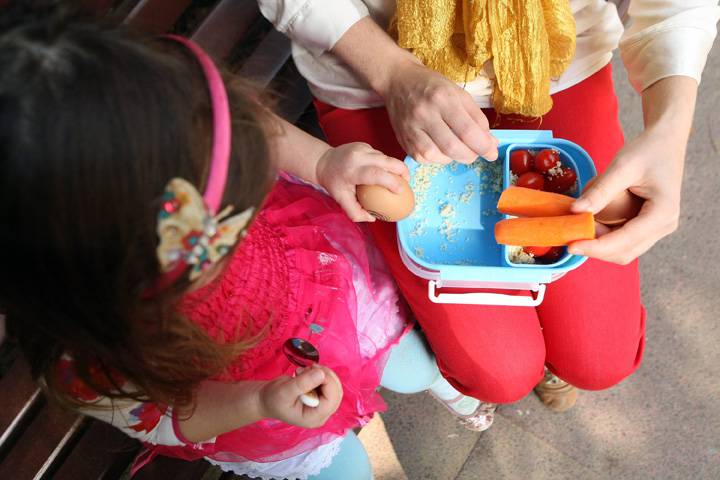Sweet or salty? Turns out, your toddler’s dessert preference could be an early warning sign for weight troubles as he or she gets older.

A new U.S. study is warning that kids with a sweet tooth are at a higher risk of unhealthy weight gain and body fat increases. It’s adding to a library of research pointing to how babies’ eating habits and preferences shape their health trajectories in the following years.
This time around, University of Michigan scientists worked with 209 moms and their kids. They had the toddlers — between one and three years old — fast for one hour before eating a “substantial” lunch.
After they filled up on their meal, they were presented with a tray of sweets, like chocolate chip cookies, and salty snacks, like potato chips. The kids were allowed to eat as much as they wanted.
READ MORE: Your child’s weight in kindergarten could predict obesity later on
The kids who ate more of the sweet treats became upset when the food was taken away. By the time the toddlers reached 33 months old, they experienced gradual increases in body fat.
The kids who reached for the salty snacks didn’t see any out-of-character climbs in their body weight and fat composition.
“We found that toddlers’ eating sweet, but not salty, tasty foods after they already ate a filling meal puts children at a greater risk of weight gain,” Dr. Julie Lumeng, the study’s senior author and a behavioural pediatrician at the university, said.
Her concern is that these kids were eating the cookies after they were already full from their lunchtime meal. Eating in the absence of hunger has been tied to being overweight in older kids, but she says it’s the first time scientists have seen this link in toddlers.
READ MORE: Preschoolers’ eating habits linked to future heart health risks
It’s a habit the youngsters could carry well into adulthood.
“The tendency to eat when you’re not hungry increases with age and could have lifelong implications for weight gain. We need to explore ways to target this drive to eat before children even turn three,” she warned.
Her full findings were published Monday in the journal Pediatrics.
Other researchers have suggested that kids don’t necessarily grow out of their “baby fat” phase and their weight by the time they enter kindergarten could be a predictor of a path into obesity as adults.
Last year, Emory University doctors warned that kids who are overweight in kindergarten are four times more likely to become obese by their eighth grade graduation than their normal-weight counterparts.
“We have evidence that certain factors established before birth and during the first five years are important. Obesity-prevention efforts focused on children who are overweight by five years old may be a way to target children susceptible to becoming obese later in life,” the researchers said.
READ MORE: Do babies inherit junk food addictions from their moms?
The medical community is even shedding light on how pregnancy is critical in a child’s life.
“Maternal diet, maternal weight gain and the infant’s diet during the first few years may have an outsized influence on long-term risk for obesity and related diseases,” said Dr. David Ludwig, a childhood obesity specialist at Boston Children’s Hospital.
carmen.chai@globalnews.ca
Follow @Carmen_Chai


Comments